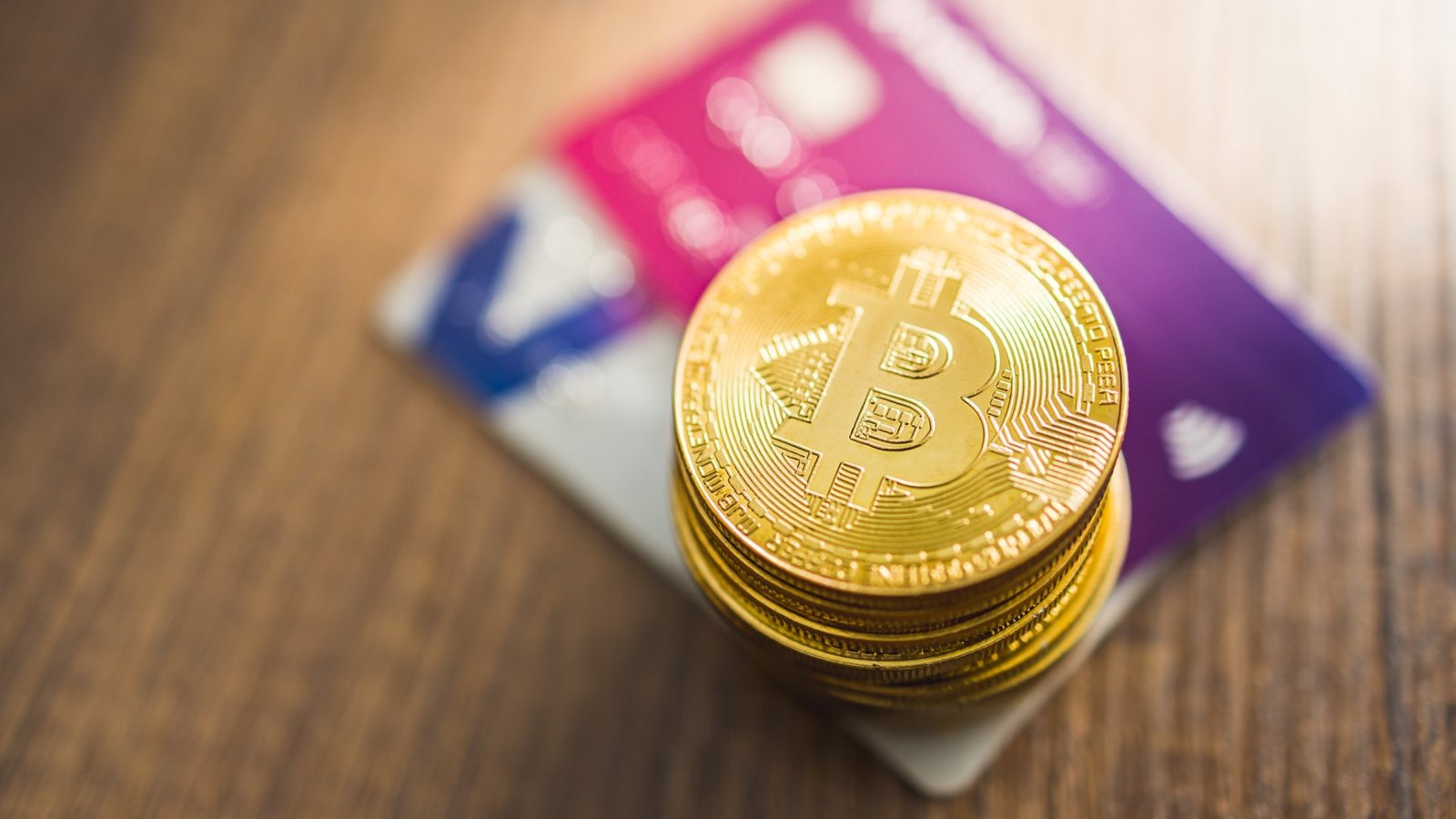The world of cryptocurrency has revolutionized how we think about money, investments, and even everyday spending. Among the most exciting developments in this space are bitcoin cashback credit cards, which allow consumers to earn cryptocurrency rewards on their daily purchases. These innovative financial products bridge the gap between traditional banking and the digital currency revolution, offering cardholders the opportunity to accumulate Bitcoin and other cryptocurrencies simply by using their credit cards for routine transactions.
As cryptocurrency adoption continues to surge globally, more consumers are seeking ways to integrate digital assets into their financial strategies. Bitcoin cashback credit cards represent a perfect entry point for both crypto enthusiasts and newcomers alike, providing a passive way to build a cryptocurrency portfolio through everyday spending. Whether you’re purchasing groceries, paying for gas, or shopping online, these cards transform your regular expenses into potential crypto investments.
Understanding Bitcoin Cashback Credit Cards
Bitcoin cashback credit cards operate on a simple yet innovative principle: instead of earning traditional cash rewards or points, cardholders receive cryptocurrency as their reward. These cards typically offer Bitcoin (BTC) as the primary reward currency, though some providers extend rewards to include other popular cryptocurrencies like Ethereum, Litecoin, or proprietary tokens.
The fundamental mechanism works similarly to traditional cashback cards. When you make purchases using your bitcoin cashback credit card, you earn a percentage of your spending back in cryptocurrency. This percentage varies by card and spending category, typically ranging from 1% to 4% or even higher for specific merchants or promotional periods.
How Crypto Rewards Differ from Traditional Cashback
Unlike traditional cashback that provides immediate monetary value, bitcoin rewards introduce an element of investment potential. The value of your cryptocurrency rewards can fluctuate based on market conditions, potentially increasing or decreasing over time. This volatility adds both opportunity and risk to your reward earnings, making these cards particularly appealing to users who believe in cryptocurrency’s long-term growth potential.
Most bitcoin cashback credit cards automatically convert your rewards into cryptocurrency and deposit them into a designated crypto wallet or account. Some providers offer the flexibility to hold rewards in USD initially, allowing cardholders to convert to cryptocurrency at their preferred timing.
Top Bitcoin Cashback Credit Cards in 2025

BlockFi Rewards Visa Signature Credit Card
The BlockFi Rewards card has established itself as a leader in the bitcoin cashback credit cards space. Offering 1.5% back in Bitcoin on all purchases with no annual fee, this card provides consistent crypto rewards across all spending categories. The card features no foreign transaction fees and includes standard Visa benefits.
Key features include automatic Bitcoin deposits to your BlockFi Interest Account, where your crypto rewards can potentially earn additional interest. The card also offers enhanced security features and integration with BlockFi’s broader cryptocurrency platform ecosystem.
Coinbase Card
While technically a debit card rather than a credit card, the Coinbase Card deserves mention for its competitive crypto rewards program. Users can earn up to 4% back in select cryptocurrencies, including Bitcoin, on their purchases. The card connects directly to your Coinbase account, providing seamless integration with one of the world’s largest cryptocurrency exchanges.
The Coinbase Card offers flexibility in reward selection, allowing users to choose from various cryptocurrencies including Bitcoin, Ethereum, Dogecoin, and others. This flexibility makes it appealing to users who want to diversify their crypto reward portfolio beyond just Bitcoin.
Fold Card
The Fold Card takes a unique approach to bitcoin cashback credit cards by offering rewards based on spinning a digital wheel after each purchase. Users can earn anywhere from 1% to 100% back in Bitcoin, with the average reward rate being approximately 1-2%. The gamification element adds excitement to everyday purchases while building Bitcoin holdings.
Additional benefits include enhanced rewards at select merchants and the ability to earn Bitcoin through the Fold app’s various features and partnerships. The card also offers FDIC insurance on USD balances and no foreign transaction fees.
Benefits of Using Bitcoin Cashback Credit Cards
Investment Potential
The primary advantage of bitcoin cashback credit cards lies in their investment potential. Unlike traditional cashback that maintains static value, cryptocurrency rewards can appreciate significantly over time. Historical Bitcoin performance suggests that patient holders have often seen substantial returns on their crypto accumulation.
This investment aspect transforms routine spending into a dollar-cost averaging strategy for Bitcoin acquisition. By earning small amounts of cryptocurrency regularly through everyday purchases, cardholders automatically build their crypto portfolio without additional investment decisions or timing considerations.
Portfolio Diversification
Bitcoin cashback credit cards offer an accessible way to diversify investment portfolios with cryptocurrency exposure. For individuals hesitant to make large cryptocurrency purchases directly, earning crypto through credit card spending provides a gradual, low-risk entry into the digital asset space.
This diversification can be particularly valuable during inflationary periods when traditional fiat currencies may lose purchasing power. Cryptocurrency assets, while volatile, have historically served as a hedge against currency devaluation and economic uncertainty.
Technology Integration
These cards often come with advanced mobile apps and digital wallet integrations that provide real-time tracking of cryptocurrency earnings, market values, and portfolio performance. Many providers offer educational resources, market analysis, and additional cryptocurrency services through their platforms.
The technology integration extends to security features as well, with many bitcoin cashback credit cards incorporating advanced fraud protection, biometric authentication, and blockchain-based transaction verification for enhanced security.
How to Choose the Best Bitcoin Cashback Credit Card
Reward Rate Analysis
When evaluating bitcoin cashback credit cards, the reward rate represents the most critical factor for maximizing crypto earnings. However, don’t focus solely on the headline rate; consider the reward structure across different spending categories. Some
cards offer flat rates on all purchases, while others provide bonus rates for specific categories like dining, gas, or online shopping. Calculate your potential annual crypto earnings based on your typical spending patterns. A card offering 2% on groceries might be more valuable than a 1.5% flat-rate card if you spend significantly on food purchases.
Fee Structure Considerations
Annual fees, foreign transaction fees, and cryptocurrency conversion fees can significantly impact the net value of your rewards. Some bitcoin cashback credit cards waive annual fees for the first year or permanently, while others charge substantial fees that may offset reward earnings for low-spending users.
Pay particular attention to cryptocurrency withdrawal or conversion fees, as these can erode the value of your earned rewards. Some providers offer fee-free crypto transactions within their ecosystem but charge for external transfers.
Platform Integration and Usability
Consider how well the card integrates with your existing cryptocurrency management strategy. Cards that connect seamlessly with major exchanges or offer comprehensive portfolio management tools may provide additional value beyond just earning rewards.
Evaluate the user interface, mobile app functionality, and customer support quality. Since cryptocurrency technology can be complex, responsive customer service and intuitive platforms become crucial for optimal user experience.
Maximizing Your Bitcoin Cashback Rewards

Strategic Spending Categories
To maximize rewards from bitcoin cashback credit cards, align your spending with the card’s bonus categories when possible. If your card offers enhanced rates for dining or online shopping, prioritize using it for these purchases while using other payment methods for lower-reward categories. Consider timing large purchases during promotional periods when cards may offer increased reward rates or signup bonuses. Many providers run limited-time promotions that can significantly boost your crypto earnings.
Dollar-Cost Averaging Benefits
Bitcoin cashback credit cards naturally create a dollar-cost averaging effect for cryptocurrency accumulation. By earning small amounts of Bitcoin regularly, you reduce the impact of market volatility on your overall crypto acquisition cost. This systematic accumulation approach can be particularly beneficial during volatile market periods, as you’ll acquire Bitcoin at various price points over time, potentially smoothing out short-term price fluctuations.
Long-term Holding Strategies
Develop a clear strategy for managing your cryptocurrency rewards. Consider whether you’ll hold all earned Bitcoin long-term, periodically take profits, or reinvest into other cryptocurrencies. Your approach should align with your overall investment goals and risk tolerance. Some cardholders choose to hold all crypto rewards for predetermined periods (such as one or five years) to maximize potential appreciation, while others prefer more active management strategies.
Security Considerations for Bitcoin Credit Cards
Wallet Security Best Practices
When using bitcoin cashback credit cards, understand how your cryptocurrency rewards are stored and secured. Many providers use hot wallets for operational efficiency, but consider transferring significant balances to cold storage solutions for enhanced security. Implement strong authentication practices, including two-factor authentication, complex passwords, and regular security reviews. Keep detailed records of your cryptocurrency earnings for tax reporting purposes.
Fraud Protection Features
Evaluate the fraud protection offered by bitcoin cashback credit cards, as cryptocurrency transactions are typically irreversible. Look for cards that provide robust dispute resolution processes and comprehensive fraud monitoring. Understand the liability policies for unauthorized transactions and ensure you’re comfortable with the level of protection provided. Some traditional credit card protections may not apply to cryptocurrency-related transactions.
Tax Implications of Bitcoin Cashback Rewards
Reward Recognition for Tax Purposes
Cryptocurrency rewards from bitcoin cashback credit cards are generally considered taxable income at the time of receipt, based on the fair market value of the cryptocurrency when earned. This creates immediate tax liability regardless of whether you sell or hold the cryptocurrency.
Maintain detailed records of all cryptocurrency rewards, including dates received, amounts, and market values at the time of receipt. This documentation will be essential for accurate tax reporting and potential future capital gains calculations.
Capital Gains Considerations
When you eventually sell or use your cryptocurrency rewards, you may incur capital gains or losses based on the difference between the value when received and the value when disposed of. Understanding these tax implications is crucial for effective financial planning.
Consider consulting with a tax professional familiar with cryptocurrency taxation, as regulations continue to evolve and can be complex. Proper tax planning can help optimize your overall returns from bitcoin cashback credit cards.
Common Mistakes to Avoid
Overemphasizing Reward Rates
While reward rates are important, don’t make them the sole factor in choosing bitcoin cashback credit cards. Consider the total cost of ownership, including fees, interest rates (if you carry balances), and the overall user experience. Some cards with lower reward rates may offer better value when considering annual fees, forex fees, and other charges. Calculate the net rewards after all fees to make informed decisions.
Neglecting Traditional Credit Factors
Remember that bitcoin cashback credit cards are still credit cards with traditional banking features. Don’t ignore important factors like interest rates, credit limits, payment terms, and customer service quality in favor of focusing only on crypto rewards. Maintain good credit habits regardless of the reward structure. Carrying balances and paying interest charges can quickly negate any benefits from cryptocurrency rewards.
Market Volatility Misunderstanding
Cryptocurrency markets are highly volatile, and the value of your rewards can fluctuate significantly. Don’t assume that earning crypto rewards is equivalent to earning cash rewards of the same nominal value. Develop realistic expectations about reward volatility and ensure you’re comfortable with the potential for both gains and losses in your cryptocurrency reward holdings.
Future of Bitcoin Cashback Credit Cards
Industry Growth Trends
The bitcoin cashback credit cards sector continues expanding as mainstream financial institutions recognize growing consumer demand for cryptocurrency integration. Major banks and credit card companies are exploring crypto reward programs, likely leading to increased competition and improved offerings.
Regulatory clarity around cryptocurrency continues evolving, potentially creating more favorable conditions for broader adoption of crypto reward programs. This regulatory development could lead to more innovative products and features in the bitcoin cashback credit cards space.
Also Read: Fold Bitcoin Rewards Visa Earn Crypto on Every Purchase
Technology Innovations
Emerging technologies like lightning network integration, smart contract automation, and enhanced security protocols may significantly improve the functionality and user experience of bitcoin cashback credit cards. Integration with decentralized finance (DeFi) protocols could enable cardholders to automatically stake or lend their cryptocurrency rewards, potentially generating additional returns beyond the base cashback rates.
Conclusion
Bitcoin cashback credit cards represent an innovative intersection of traditional finance and cryptocurrency innovation, offering consumers a practical way to accumulate digital assets through everyday spending. These cards provide unique advantages, including investment potential, portfolio diversification, and integration with cutting-edge financial technology. Success with bitcoin cashback credit cards requires careful consideration of reward rates, fees, security features, and your personal cryptocurrency investment strategy.
As the cryptocurrency landscape continues evolving, bitcoin cashback credit cards are likely to become increasingly sophisticated, offering enhanced features, better integration with broader financial services, and improved user experiences. By understanding the current market, making informed choices, and maintaining realistic expectations, consumers can effectively leverage these innovative financial products to build cryptocurrency wealth through their regular spending habits.

